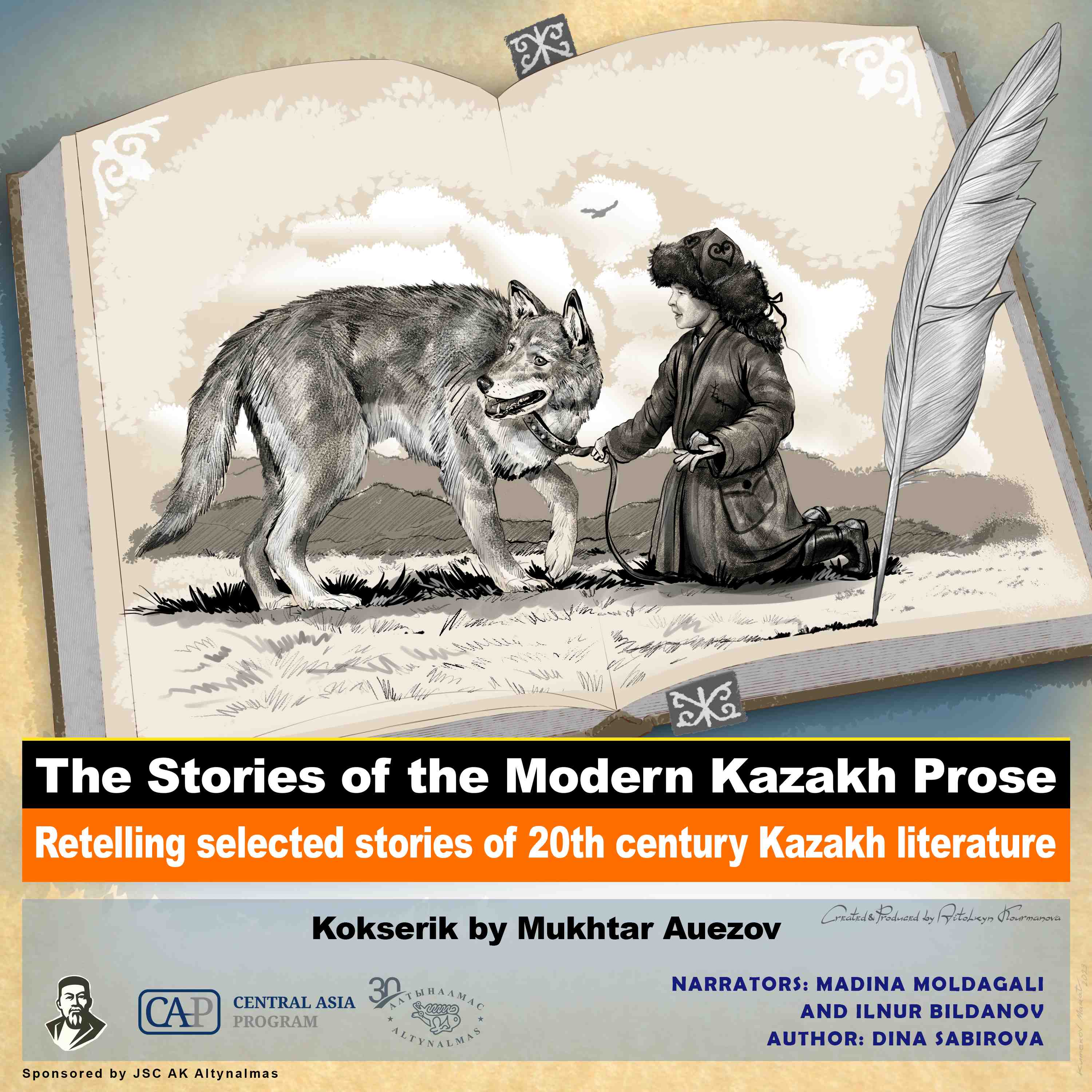Mukhtar Auezov (September 28, 1897–June 27, 1961) was a prominent Kazakh writer and an honored academic of the Soviet Union. Auezov's works had a major influence on the development of Kazakh literature. He wrote numerous essays, short stories, and plays (many of which have been translated into other languages) in different genres, but his greatest literary work was an epic entitled The Way of Abai. The latter brought him the prestigious Lenin Prize in 1958. In this episode, we want to retell one of his lesser-known works: Kokserik, a story about a fierce gray wolf. The story became the basis of the 1974 Soviet drama film of the same name directed by Tolomush Okeyev, which was selected as the Soviet entry for Best Foreign Language Film at the 47th Academy Awards.
Many researchers believe that Kokserek was influenced by Jack London’s White Fang. But wolves and animals feature regularly in great Central Asian stories, most notably those of Chingiz Aitmatov. Auezov’s story is simultaneously realistic and symbolic. Kokserek was a gray wolf whom humans tried to domesticate. But the wolf could not be tamed, just as nature in general cannot. The rules cannot be altered and enemies cannot be friends. If a man breaks the legs of wolf pups in the hope of protecting his sheep, a wolf is capable of inflicting the same grief on the man and his children. An animal is driven by its instincts, which Auezov presents realistically. Wild nature is beautiful and cruel, and man must adapt to it, not alter it.













